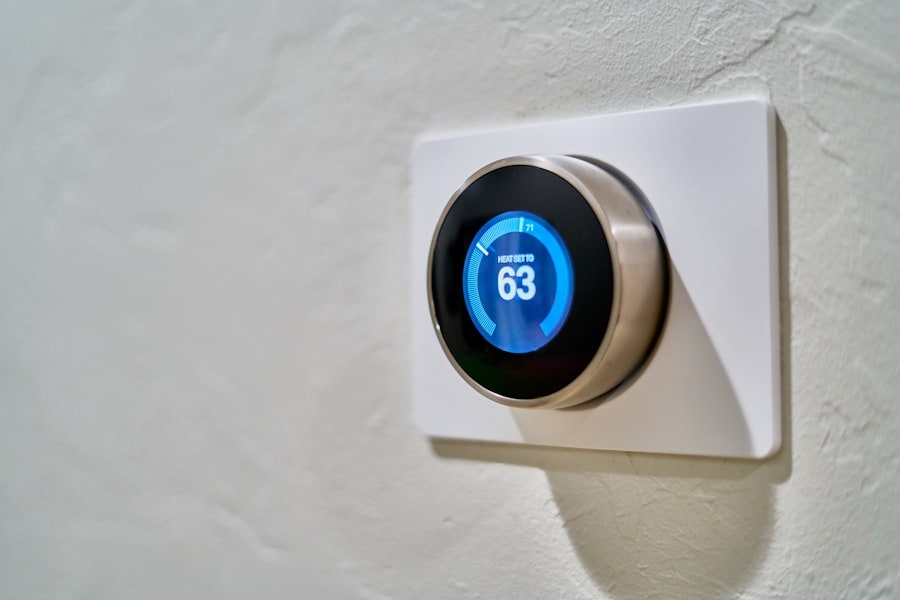Water leaks can lead to significant damage in homes, often resulting in costly repairs and extensive restoration efforts. The importance of early detection cannot be overstated, as even a small leak can escalate into a major problem if left unchecked. Smart sensors have emerged as a vital tool in the realm of home maintenance, providing homeowners with the ability to monitor their properties proactively.
These devices not only detect leaks but also offer real-time alerts, enabling swift action to mitigate potential damage. The financial implications of water leaks are staggering. According to the Environmental Protection Agency (EPA), leaks in the average household can account for nearly 10,000 gallons of water wasted annually.
This not only affects water bills but also contributes to environmental degradation. Smart sensors serve as a frontline defense against such waste, allowing homeowners to take immediate action when a leak is detected. By integrating these devices into home management systems, individuals can ensure that their properties remain safe and efficient, ultimately preserving both their investment and the environment.
Key Takeaways
- Smart sensors are crucial for detecting water leaks in the home to prevent costly damage and potential health hazards.
- These sensors work by detecting changes in moisture levels and sending alerts to homeowners, allowing for quick action to be taken.
- Using smart sensors for water leak detection provides benefits such as early detection, remote monitoring, and potential insurance discounts.
- There are various types of smart sensors available, including point-of-use sensors, whole-home monitoring systems, and wireless options.
- Installation and regular maintenance of smart sensors are essential for ensuring their effectiveness in detecting water leaks and preventing damage.
How Smart Sensors Work to Detect Water Leaks in the Home
Accurate Detection and Prevention
This technology allows for precise detection of even minor leaks, ensuring that homeowners are alerted before significant damage occurs. In addition to moisture detection, many smart sensors are equipped with additional features such as temperature monitoring and humidity sensing. These capabilities allow for a more comprehensive understanding of the home’s environment.
Comprehensive Environmental Monitoring
For instance, a sudden drop in temperature combined with increased humidity could indicate a leak or potential freeze risk. This comprehensive monitoring enables homeowners to take proactive measures to prevent damage and ensure their home remains safe and secure.
Real-Time Alerts and Connectivity
Furthermore, many smart sensors are designed to connect to Wi-Fi networks, enabling them to send alerts directly to homeowners’ smartphones or other devices. This connectivity ensures that users are informed of any issues regardless of their location, providing peace of mind and facilitating prompt responses.
The Benefits of Using Smart Sensors for Water Leak Detection

The advantages of employing smart sensors for water leak detection extend beyond mere convenience. One of the most significant benefits is the potential for cost savings. By identifying leaks early, homeowners can avoid extensive damage that often leads to expensive repairs.
For example, a small leak in a pipe can lead to mold growth, structural damage, and even compromised electrical systems if left unattended. Smart sensors help mitigate these risks by providing timely alerts that allow for immediate intervention. Moreover, smart sensors contribute to water conservation efforts.
With growing concerns about water scarcity and environmental sustainability, reducing water waste is more critical than ever. By detecting leaks promptly, these devices help homeowners minimize unnecessary water usage, aligning with broader conservation goals. Additionally, many smart sensors offer analytics features that track water usage patterns over time, empowering homeowners to make informed decisions about their consumption habits and further reduce waste.
Types of Smart Sensors Available for Home Water Leak Detection
The market offers a diverse array of smart sensors tailored for water leak detection, each designed with specific features and functionalities. One common type is the standalone leak detector, which is typically placed in areas prone to leaks, such as basements or near appliances like washing machines and dishwashers. These devices often emit audible alarms when they detect moisture and may also send notifications to connected smartphones.
Another popular option is the integrated smart home sensor, which combines water leak detection with other functionalities such as temperature and humidity monitoring. These multi-functional devices can provide a more holistic view of the home’s environment and are often compatible with existing smart home ecosystems. For instance, some models can integrate with platforms like Amazon Alexa or Google Assistant, allowing users to control and monitor their home environment through voice commands.
Additionally, there are advanced models equipped with features such as automatic shut-off valves. These systems can detect a leak and automatically shut off the water supply to prevent further damage. This level of automation adds an extra layer of protection for homeowners who may not be present to respond to alerts immediately.
Installation and Maintenance of Smart Sensors for Water Leak Detection
Installing smart sensors for water leak detection is generally straightforward, making them accessible for most homeowners. Many devices come with adhesive backing or mounting brackets that allow for easy placement in strategic locations around the home. Common installation sites include under sinks, near water heaters, and around appliances that use water.
Some models may require a power source or connection to a home Wi-Fi network, which should be considered during installation. Maintenance of smart sensors is typically minimal but essential for ensuring optimal performance. Regularly checking the batteries in battery-operated models is crucial; many devices will send alerts when battery levels are low.
Additionally, homeowners should periodically test the functionality of their sensors by simulating a leak—this can be done by placing a small amount of water near the sensor to ensure it responds appropriately. Keeping the sensor clean and free from dust or debris will also help maintain its sensitivity and accuracy.
Integrating Smart Sensors with Home Automation Systems for Water Leak Detection

The integration of smart sensors with home automation systems enhances their functionality and provides users with greater control over their home environment. Many modern smart home platforms allow for seamless connectivity between various devices, enabling homeowners to create customized automation routines. For example, if a smart sensor detects a leak, it can trigger other devices within the system—such as sending alerts to smartphones or activating smart valves to shut off the water supply.
Homeowners can access their smart sensors through mobile applications, enabling them to check the status of their home’s water systems from anywhere in the world. This capability is particularly beneficial for those who travel frequently or maintain second homes; they can receive real-time updates and take action if necessary without being physically present.
By analyzing patterns in water usage and environmental conditions, these systems can provide insights into potential risks and suggest preventative measures before issues arise.
Addressing Common Concerns and Misconceptions About Smart Sensors for Water Leak Detection
Despite their growing popularity, several misconceptions about smart sensors for water leak detection persist among homeowners. One common concern is that these devices are overly sensitive and may produce false alarms due to minor fluctuations in humidity or temperature. While it is true that some lower-quality models may struggle with accuracy, many reputable brands have developed sophisticated algorithms that minimize false positives by distinguishing between normal environmental changes and actual leaks.
Another misconception is that smart sensors require extensive technical knowledge for installation and operation. In reality, most devices are designed with user-friendliness in mind, featuring intuitive interfaces and straightforward setup processes. Many manufacturers provide detailed instructions and customer support resources to assist users in getting started without requiring advanced technical skills.
Additionally, some homeowners may worry about the reliability of smart sensors during power outages or internet disruptions. Many modern devices are equipped with battery backups that ensure continued operation even when power is lost. Furthermore, some models utilize local communication protocols that do not rely solely on internet connectivity, allowing them to function independently during outages.
The Future of Smart Sensors in Home Water Leak Detection and Prevention
The future of smart sensors in home water leak detection appears promising as technology continues to advance at an unprecedented pace. Innovations in artificial intelligence (AI) and machine learning are expected to enhance the capabilities of these devices significantly. For instance, future models may incorporate AI algorithms that learn from user behavior and environmental patterns over time, allowing them to predict potential leaks before they occur based on historical data.
Moreover, as the Internet of Things (IoT) expands, we can anticipate even greater integration between smart sensors and other home automation technologies. This interconnectedness will enable more comprehensive monitoring solutions that not only detect leaks but also assess overall home health by analyzing factors such as air quality and energy consumption. Additionally, advancements in materials science may lead to the development of more durable and sensitive sensors capable of detecting even smaller leaks or changes in moisture levels.
As awareness grows regarding the importance of water conservation and property protection, it is likely that smart sensors will become an essential component of modern home management systems. In conclusion, as technology evolves and awareness increases regarding the importance of proactive home maintenance, smart sensors will play an increasingly vital role in safeguarding homes against water leaks and promoting sustainable living practices.
If you are interested in learning more about technology and its applications, you may want to check out this article on the best software to clone HDD to SSD. This article discusses the importance of using the right software when transferring data from a hard drive to a solid-state drive, ensuring a smooth and efficient process. Just like how smart sensors play a crucial role in detecting home water leaks, having the right software is essential for optimizing your computer’s performance.
FAQs
What are smart sensors for detecting home water leaks?
Smart sensors for detecting home water leaks are devices that use advanced technology to monitor water usage and detect any abnormal patterns that may indicate a leak. These sensors can be installed in various locations throughout the home, such as near water heaters, under sinks, and in basements, to provide comprehensive coverage.
How do smart sensors for detecting home water leaks work?
Smart sensors for detecting home water leaks work by continuously monitoring water flow and pressure in the plumbing system. When a leak is detected, the sensors send alerts to the homeowner’s smartphone or other connected devices, allowing for quick action to be taken to address the issue.
What are the benefits of using smart sensors for detecting home water leaks?
The benefits of using smart sensors for detecting home water leaks include early detection of leaks, which can help prevent costly water damage and reduce water waste. These sensors also provide peace of mind for homeowners by offering real-time monitoring and alerts for potential leaks.
Are smart sensors for detecting home water leaks easy to install and use?
Many smart sensors for detecting home water leaks are designed to be easy to install and use, often requiring no professional installation. These sensors typically connect to a home’s Wi-Fi network and can be controlled and monitored through a smartphone app, making them user-friendly for homeowners.
Can smart sensors for detecting home water leaks help save money on water bills?
Yes, smart sensors for detecting home water leaks can help save money on water bills by identifying and addressing leaks that may otherwise go unnoticed. By preventing water waste from leaks, homeowners can potentially see a reduction in their water usage and associated costs.

